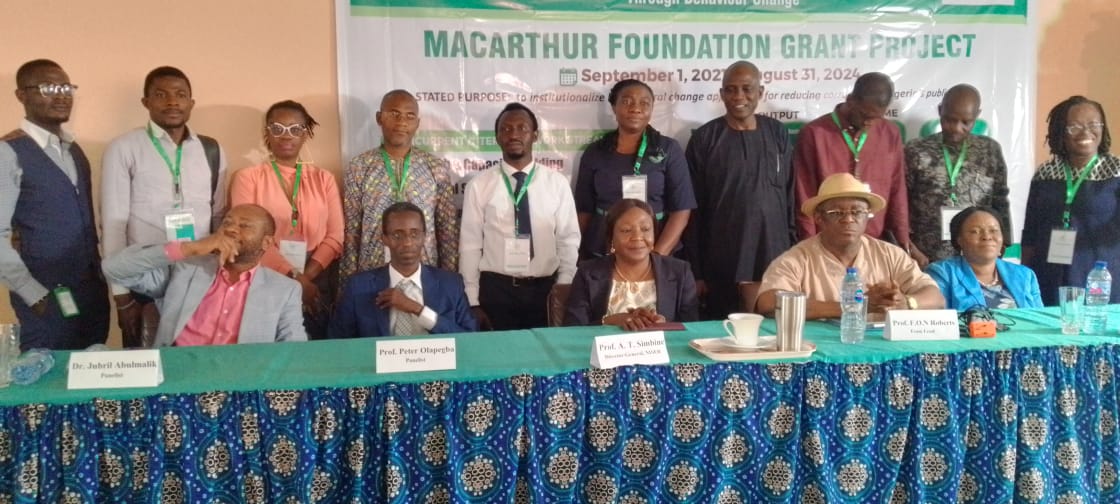

The need to tackle Nigeria’s corruption through a bottom up approach in attitude change took a centre stage at an event held at the Nigeria Institute of Social and Economic Research, seminar room, NISER, Ibadan.
The new research approach which attempt to investigate people’s disposition to corruption among the low once earners and government functionaries in selected parastatals was a four years project in conjuction with McCarthur Foundation.
In their seperate explanations on the new approach, the two leading field reaseachers, Dr Oluwatosin Ilevbare and Dr Oluwafemi Famakinde said a number of academic theories and reasoned action provided evidence of people’s deliberate intension to perpetrate corruption despite it’s wide condemnation.
The scholars said there was the need to probe such attitude formation which they claimed manifest in peoples outward behaviours.
In an interview, a principal investigator at NISER Dr Abubarka Oladeji who is also an associate professor said the new approach was not only targeting the Low class but also actor in political institutions.
Dr Oladeji expressed optimism that Nigeria would soon overcome the challenge posed by the monster.
Earlier in a welcome remark, the Director General, NISER, Professor A.T Simbine said NISER through the grants provided the institutes has the mandate of conducting research on socio economic issues affecting the country.
Professor Simbine said corruption in Nigeria is a complex phenomenon that had long found its deep root in country since independence, hence, the need for the current research approach.
“Consequently, we are dealing with a system that has morphed over time, and remains dynamic still. Given the foregoing foundational fault lines, Nigeria’s bureaucracy, its institutions and actors present complex challenges, one of which is corrupt behaviour. Our research thus far, provides us with some understanding of why traditional approaches to stemming corrupt practices, including detection based technical fixes, investigation, prosecution and sanctions have recorded little success. We now understand corruption to be a complex-adaptive problem, hence our leaning towards Behavioural Solutions.”
Professor Simbine said the survey harvested experiences from 2,560 citizens and also collected stories from over 600 public officials in various government offices to balance out the narratives.
She added that outcome of the findings would later form part of the research series of the institute in the nearest future.
Rotimi Famakin